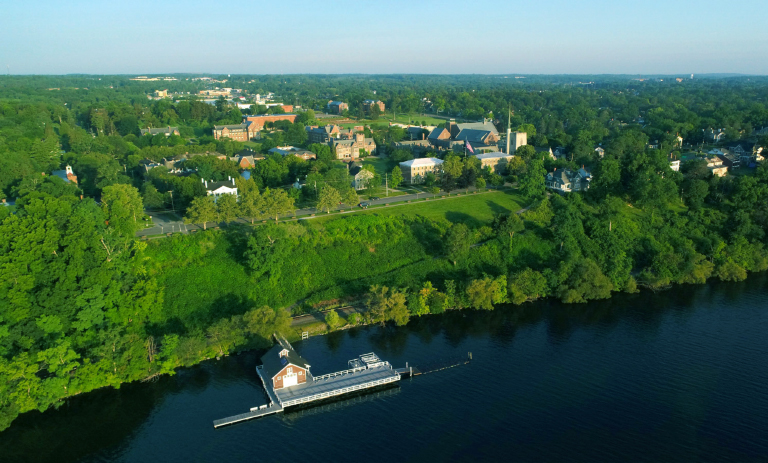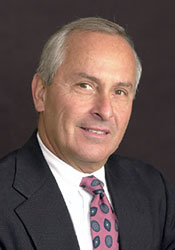
Lives of Consequence
Dr. Steven J. Phillips '62

Saving lives during emergencies is the life's work of Dr. Steven J. Phillips '62. And it's taken him around the world.
After he finished medical school at Tufts University, Phillips put his medical skills to work in the U.S. Army. Assigned to the 101st Airborne during the Vietnam War, Phillips helped reopen a medical school in Hue, destroyed in the Tet Offensive.
In 1974, he introduced a groundbreaking approach to treating heart attack victims. In a time when doctors feared that heart attack patients with chest pains were too weak to withstand bypass surgery, Phillips performed immediate surgery.
"We were very heavily criticized for doing this. It was a no-no," he says.
But there's no arguing with Phillips' approach when it cut the mortality rate for heart attacks from more than 20 percent to less than one percent.
Although Phillips retired from his practice as a cardiac surgeon more than a dozen years ago, retirement didn't last long: "I came to work for the National Institute of Health around 1999 because I was bored with retirement," he says.
Five years later, Phillips retired a second time. Again, retirement proved temporary.
"In 2006, the NIH called me to help with the Disaster Information Management Research Center," Phillips says.
As of early 2013, the DIMRC was working with the Bethesda Hospital Emergency Partnership Program to respond to national disasters and to create a hospital surge model for the U.S.
"How would we get information to help people to prepare for an earthquake or a chemical attack? At the tactical level, we create algorithms that could be downloaded to a smart phone with ways to handle a chemical attack or a disaster," Phillips says.
Hurricane Sandy offers a recent example of the need for a thorough contingency plan during a crisis. New York University's Bellevue Hospital lost power and had to transfer hundreds of patients to other facilities.
"They had contingency plans in place, but they didn't have a definitive plan for how to communicate," Phillips says. "They did it with paper, as opposed to the harmonization of the IT system. How do we add staff to a hospital? How do we communicate when land lines and the Internet are down?"
Phillips and his team work to answer those critical questions and continue the trajectory of saving lives.
As a student, Phillips was a member of Orange Key, served as vice president on the Independent Council, played lacrosse and made the Dean's List.
"My professors recognized my motivation to go to medical school," he says. "They encouraged me to work hard and be diverse."
